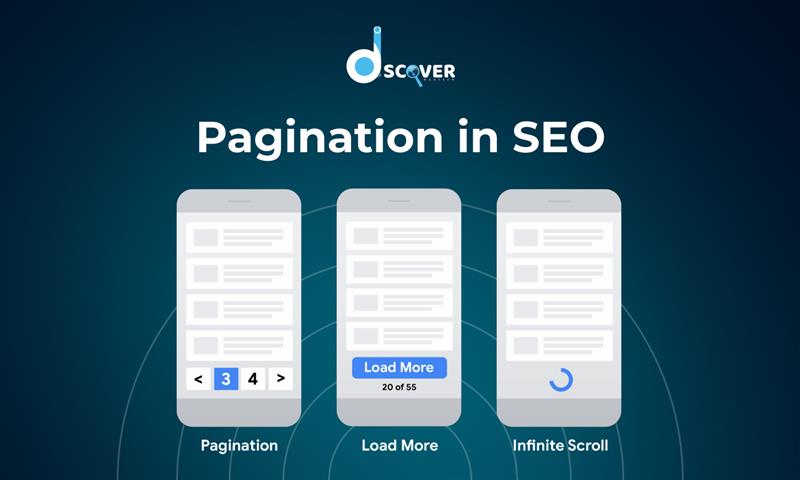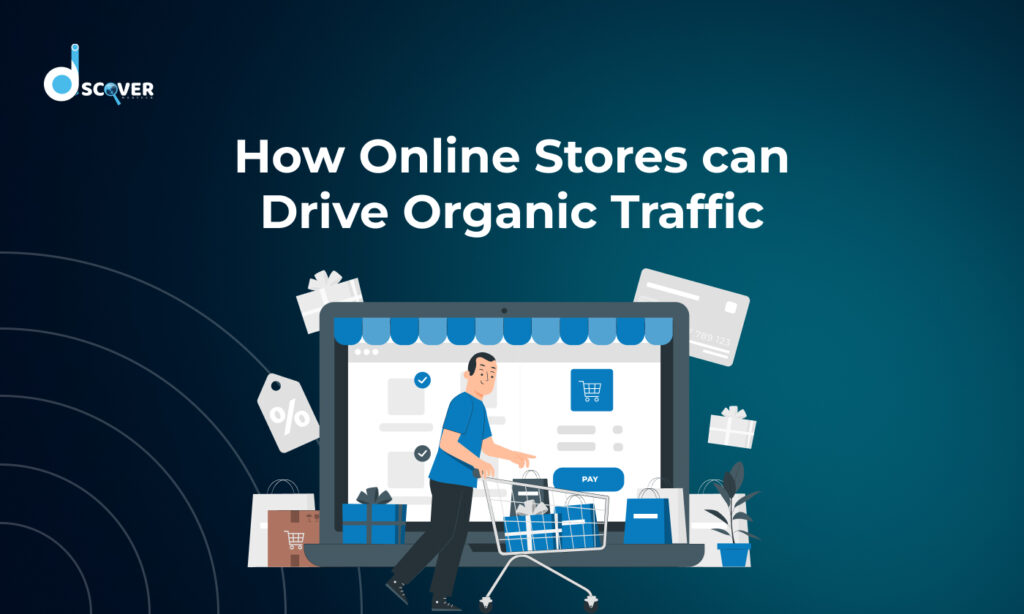
Ever visited a website with tons of content—like a blog with hundreds of articles or an online store with endless products—and noticed those little page numbers at the bottom? Yup, that’s pagination in action.
But here’s the thing: pagination isn’t just about making content easier to browse. It also plays a big role in SEO (Search Engine Optimization). If you’re wondering what is pagination, or more specifically what is pagination in SEO, you’re in the right place.
In this post, we’ll explore what pagination is, how it works behind the scenes, and why it matters so much when it comes to SEO. Plus, we’ll walk you through some SEO pagination best practices to make sure your site is both user- and search-engine-friendly.
So, What Is Pagination?
Let’s start with the basics. Pagination simply means splitting up content across multiple pages instead of showing everything on one long page.
Think of it like this:
- Browsing through blog posts? Page 1, Page 2, Page 3…
- Shopping online? 20 items on each page.
- Reading a long forum thread? It’s broken into multiple pages so it doesn’t feel endless.
This not only makes browsing easier for users but also helps pages load faster — win-win.
What Is Pagination in SEO?
Now, let’s zoom into what it means for search engines. When we talk about pagination in SEO, we’re talking about how search engines like Google handle and understand those split-up pages.
Here’s the deal: if pagination isn’t set up correctly, it can confuse search engines. They might:
- Waste time crawling duplicate or similar pages
- Miss out on indexing valuable content
- Struggle to figure out which page is the “main” one
And you definitely don’t want that.
Good SEO pagination helps search engines discover, crawl, and index your content more efficiently. It also keeps things tidy from a technical perspective, improving your site’s chances of ranking well.
How Does Pagination Work?
Behind the scenes, pagination usually works using simple URL changes. For example:
www.yoursite.com/blog?page=2
Each paginated page has its own unique URL, and they’re all linked together using “Next” and “Previous” buttons or page numbers.
Here’s how it functions:
- Unique URLs: Each page (Page 1, Page 2, etc.) has its own address.
- Navigation Links: These tell both users and search engines how to move between pages.
- Canonical Tags: This helps search engines understand that each page is part of a series.
Search engines follow those links to crawl all the pages in the series. But only if you’ve set things up properly — which we’ll get into shortly.
SEO Pagination Best Practices
Alright, now let’s talk about how to do pagination the right way for SEO. If you want search engines to love your paginated content (and your users too!), follow these tips. If you’re unsure where to begin, getting consultation with an SEO expert can guide you through technical SEO setups like pagination and save you from common pitfalls.
1. Use Unique URLs for Every Page
Don’t rely on one URL to show all content dynamically. Each page should have its own unique link — like ?page=2, ?page=3, and so on. This makes it easier for Google to find and index all your pages.
2. Add Self-Referencing Canonical Tags
Each paginated page should have a canonical tag pointing to itself — not just to the first page. This tells Google, “Hey, this page is legit, index it.”
For example:
Page 2 should have:
<link rel=”canonical” href=”www.yoursite.com/blog?page=2″>
3. Avoid Noindex Tags
Some people mistakenly add “noindex” to paginated pages thinking it helps with duplicate content. But it can actually prevent important content from getting indexed at all. Unless you really need to, don’t use noindex here.
4. Connect the Dots with Next/Previous Links
Make sure all paginated pages are clearly linked together. Use numbered links or “Next” and “Previous” buttons. It helps both people and bots navigate through your content easily.
5. Keep Internal Links Strong
Don’t isolate your paginated pages. Make sure they’re linked from menus, sidebars, or related posts/products sections so that crawlers (and users) can reach them.
6. Consider a “View All” Option
If your content isn’t too heavy, offering a “View All” version on a single page can be super helpful — for both users and search engines. Just be careful not to slow down the load time.
Common SEO Pagination Mistakes to Avoid
Let’s quickly go over a few things you don’t want to do with pagination.
Don’t canonicalize all pages to Page 1: This basically tells Google to ignore pages 2, 3, 4… and you lose all that content in search.
Don’t use “#” in your URLs for pagination: Google ignores fragment identifiers (like #page2). Always use proper query strings or slugs.
Don’t block paginated pages in robots.txt: You might think you’re saving crawl budget, but you’re actually hiding content that should be indexed.
Don’t forget mobile users: Make sure your pagination is mobile-friendly. Buttons shouldn’t be too small or hard to tap.
Pagination vs Infinite Scroll – Which Is Better for SEO?
Some websites are replacing pagination with infinite scroll, where content just keeps loading as you scroll down.
Sounds smooth, right? But here’s the catch:
Infinite scroll can be tricky for SEO unless it’s implemented with crawlable links or pre-rendered content. If Google can’t “scroll” like a user, it won’t see all your content.
Pagination, on the other hand, is:
- Easier to implement
- Easier to crawl
- More transparent for analytics and tracking
So if your main goal is SEO, stick with classic pagination — or make sure infinite scroll is SEO-friendly (which takes more effort).
Final Thoughts
Pagination might seem like a small technical detail, but it plays a big role in how your content performs in search and how users interact with your site. By following SEO-friendly pagination practices, you’re not only helping search engines understand your content better but also creating a smoother, more enjoyable experience for your visitors. Remember, clarity, structure, and accessibility go a long way in both usability and rankings. If you’re ever unsure about your site’s pagination setup, it’s worth reviewing or even getting a second opinion. After all, small tweaks today can lead to big SEO wins tomorrow.
Got questions about pagination? Drop them in the comments or reach out — we’re here to help.
Contact us to know our Digital Marketing Services
Check out our latest blog on – ‘Inside Our Success: How We Earned Top Looker Expert Status on Upwork — and Why It Matters to You’


